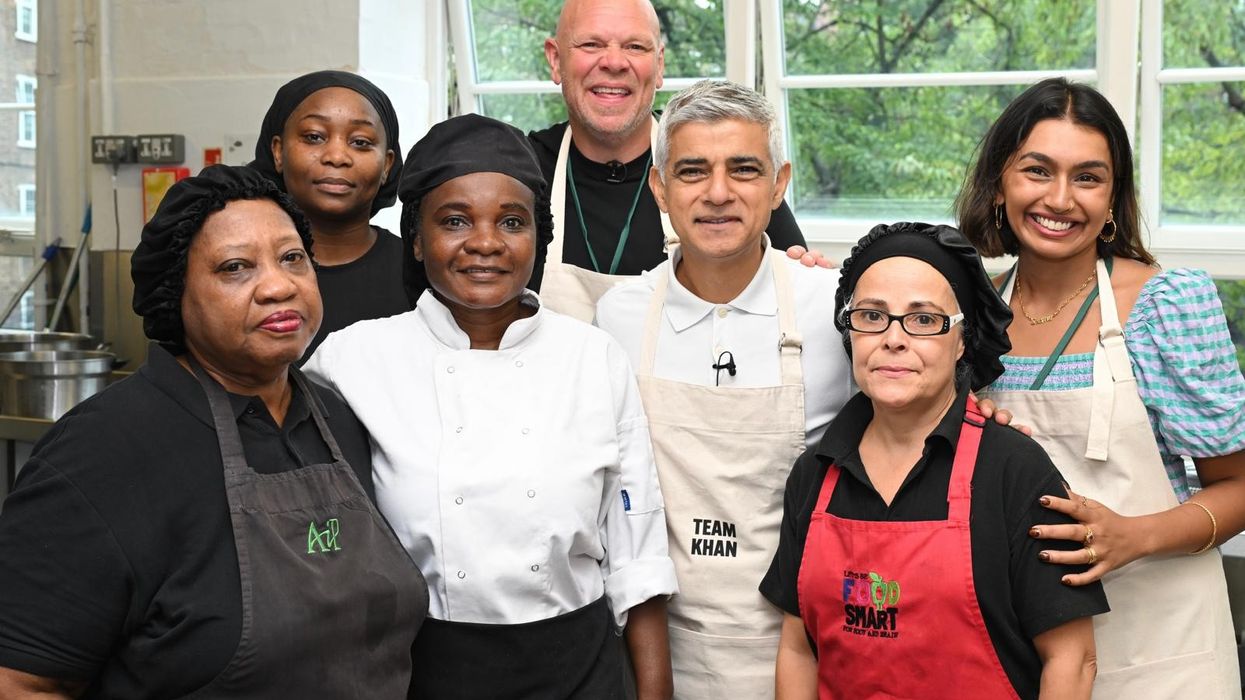LONDON mayor Sadiq Khan announced the continuation of free school meals for all children attending state primary schools in London, marking the start of the second year of this initiative.
The announcement was made at Henry Fawcett Primary School in Lambeth on Friday (6), where TV chefs Tom Kerridge and Seema Pankhania joined the mayor to celebrate the programme’s extension.
Over the past year, the initiative has provided more than 43 million free meals to children across London. The scheme, funded by City Hall, aims to ensure that all children in state primary schools receive a nutritious meal each day, helping to reduce the financial burden on families and improve student engagement in schools.
City Hall has allocated an additional £140 million to maintain the programme for another year, aiming to benefit up to 270,000 children. Families are expected to save over £1,000 per child during the first two years. Previously, free school meals were available only to children from households with earnings below £7,400 annually, excluding benefits.
A study by the Child Poverty Action Group and the National Education Union pointed out several benefits of providing free school meals to all children. It suggested that it reduces financial stress for families, improves student concentration, and removes the stigma associated with means-tested meals.
Khan said, “Funding free school meals for all state primary schoolchildren across London is one of my proudest achievements as Mayor, so I’m delighted that the programme is now entering its second year and reducing the financial pressure on families. By ensuring pupils don’t go hungry in the classroom, they can better concentrate on their studies and have the best possible chance to succeed.
“I know from personal experience what a difference free school meals can make and I am determined to ensure that no child in the capital goes hungry. That’s why for as long as I am Mayor all state primary schoolchildren will be offered free school meals, helping to build a fairer and healthier London for everyone.”
Sadiq Khan with schoolchildren (Photo: Greater London Authority)In addition to school meals, the mayor's office has allocated £7.5m to provide meals for families during school holidays and weekends. Since April 2023, over 15.3 million meals have been distributed through community organisations, with an additional 3.7 million provided during the recent summer holiday.
The mayor's initiative is part of broader efforts to support Londoners facing challenges due to the cost-of-living crisis. This includes funding for advice services, support for London's first multibank to distribute essential products, freezing TfL fares, and investing in affordable housing.
Pankhania, author of Craveable , aka @seemagetsbaked, said: “I’ve grown up food obsessed and always loved school canteen meals. As someone who received free school meals I know first-hand how much of a difference they can make to families. I'm so happy that the mayor has committed to funding free school meals for all state primary school children, and it’s been heartwarming to hear about the programme."
Khan, Seema, Tom with schoolchildren (Photo: Greater London Authority)Chef Jamie Oliver praised the continuation of London’s free school meals programme, saying it shows mayor Khan's commitment to long-term change for child health. He noted that this effort is part of a broader push to make London a healthier city by supporting initiatives like banning junk food ads.
Hugh Fearnley-Whittingstall stressed the importance of the scheme, adding that children cannot learn if they are hungry. He commended the mayor for ensuring all primary school children in London have access to nutritious meals.
Dawn Persad, Headteacher at Henry Fawcett Primary School, said that the free school meals programme is crucial for their community, providing some children with their only hot meal of the day and easing financial pressure on families.
Charlotte Hill, CEO of The Felix Project, welcomed the extension of the free school meals scheme. According to Hill, it helps families reduce food costs and allows children to focus on learning rather than worrying about their next meal.
Daniel Kebede, general secretary of the National Education Union, said, “Across the capital, children will continue to enjoy hot, healthy meals, families will benefit from much needed additional time and money this scheme will provide them with. Our members will be also be relieved to know that no child is going hungry in their classroom.”





